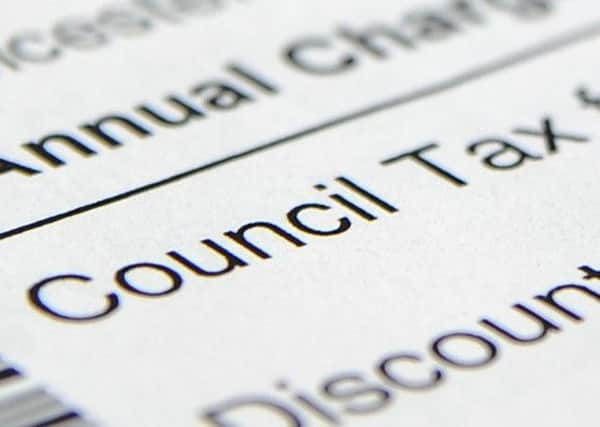Pay more; get less: Scots face '˜double whammy on council tax'
This article contains affiliate links. We may earn a small commission on items purchased through this article, but that does not affect our editorial judgement.


Twenty-nine local authorities are planning to raise council tax by 3 per cent next month, with only West Dunbartonshire, Aberdeen and Clackmannanshire yet to set their budgets.
However, it is expected that they too will follow suit according to a study carried out by The Times.
Advertisement
Hide AdAdvertisement
Hide AdAccording to a study, under the proposals bills will rise an average £34.84, with some being charged almost £100 more.
The levy increase marks the first increase in full rate council tax in almost a decade after the SNP government ended its council tax freeze, allowing local authorities to implement 3 per cent rises.
Despite the increase, a number of councils have warned that services may still be cut despite the rising cost as they will not be able to raise enough money to pay staff and provide similar levels of service.
As a result, a number of council employees are expected to be offered voluntary redundancies, but some council employees, including teachers, will be let go.
Warnings have been issued for services such as arts funding, charity grants, community wardens and bin collections as these services are more likely to be impacted by the cuts.
The increase in tax and services could also result in increased rents and more expensive school meals.
Garden disposal and on-street parking could also increase to try and stave off any further cuts.
Speaking to the Times, James Kelly, the Labour MSP, blamed the SNP government for the rises in council tax, claiming that councils would not be strapped for resources had ministers decided to raise more money from income tax.
Advertisement
Hide AdAdvertisement
Hide AdHe said: “This is the result of Derek Mackay tinkering around the edges on tax, rather than delivering the real and radical change Scotland needed. Any hypothetical benefit from the SNP’s changes to the tax system will be wiped out by council tax increases — increases that are happening because the SNP has left local government with a £386 million shortfall.”
Willie Rennie, the Scottish Liberal Democrat leader, added: “The Scottish government is pretending its budget delivers tax cuts for low earners, yet across the country, local authorities are being forced to raise council tax to plug the gaps. Local government is once again being treated as the poor relation.”
Last year most councils raised rates but many Labour-led councils refused to do so. However, this year all councils are expected to increase council tax as Nicola Sturgeon pointed out that Labour could not complain about the lack of money for councils after several Labour-run councils kept the freeze in place.
A spokesman for the Scottish government said: “Revenue funding will increase by £174 million and capital spending by almost £90 million — real-terms increases of 0.3 per cent and 9.8 per cent respectively.
“Councils also have the flexibility to raise an additional £77 million by increasing council tax by up to a maximum of 3 per cent.
“It is at councils’ discretion whether they choose to implement a rise in council tax. Local authority budget setting is the responsibility of individual authorities but their day-to-day funding will increase next year by almost £342 million.”
Council tax bills will rise by an average of £34.84 to about £1,200 this year and for those in the most expensive houses bills will increase by up to £92, taking the average annual bill to more than £3,000.
In Edinburgh, for example, Band D properties will increase by £36 with Band H properties upped by £88.
